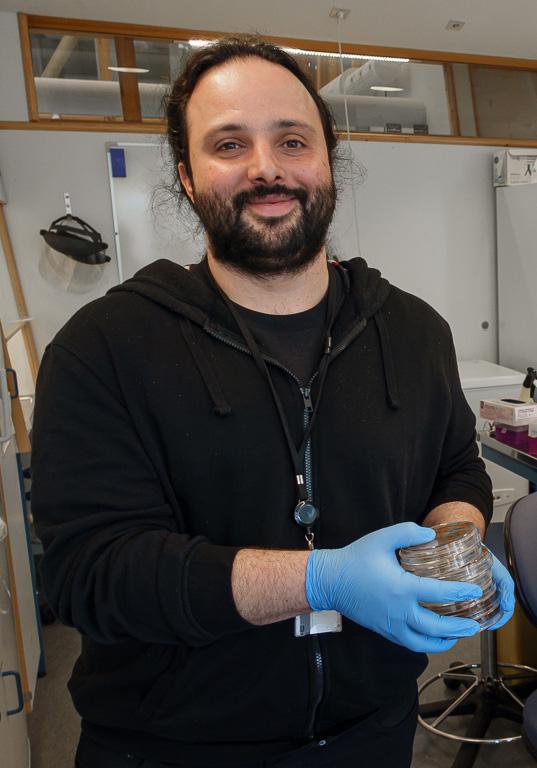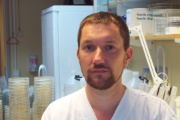CANS seminars
Feb 03. 2026 – Feb 03. 2026
Phage-bacteria immunology: in silico-driven discovery of antiphage defences and anti-defences
Where: MH, auditorium 1 – TromsøWhen: Feb 03. 2026 at 14:15 – 15:00
Presentation by professor Vasili Hauryliuk, Lund University.
Bacterial and bacteriophage genomes contain genomic regions of hyper-variability (diversity hotspots) caused by insertions of mobile genetic elements (MGEs), non-homologous recombination events and non-horizontal hypermutation.
Accessory genes encoded in the diversity hotspots are involved in anti-MGE defence and anti-defence, virulence and antimicrobial resistance (AMR), thus playing key roles in interactions amongst phages, MGEs, bacteria and eukaryotic hosts. To date most of research has focused on either individual hotspots or on relatively limited sets of hotspots in a small set of genomes, typically from a single species.
A global understanding of hotspot diversity and dynamics still lacking. In close collaboration with the bioinformatics lab led by Gemma Atkinson, we developed iLund4u, an algorithm for the systematic annotation of hotspots (art-egorov.github.io/ilund4u), analysed the hotspots in 873K phage genomes and 696K plasmid sequences, prioritized, validated and characterized numerous defence and anti-defence systems.
The pipeline developed here is ready to be employed for expiration of accessory phage-encoded genes in clinical isolates.
Professor Hauryliuk's webpage at Lund University
Welcome! Please forward!

Link to this page






